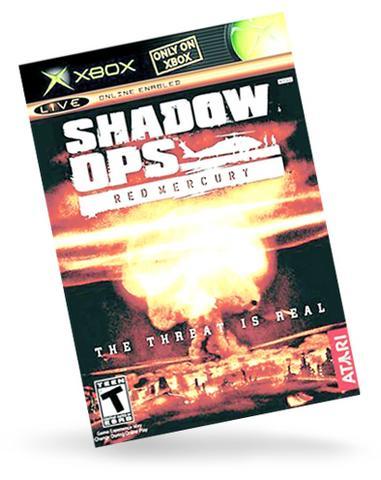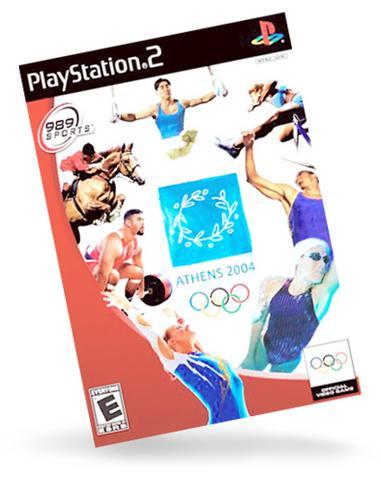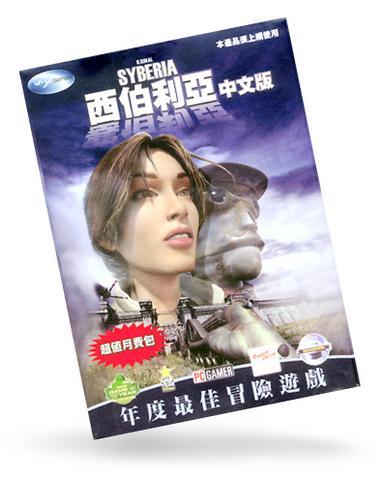Soldiers Heroes of World War II

Local and international distributor: Codemasters

PlatformL PC

Taiwan release: Already available

Soldiers Heroes of World War II is the latest in the long line of World War II-themed real-time strategy games that give war-gaming enthusiasts the opportunity to replay the struggle for Europe at squad level.
Unlike Strategy First's hit World War II Frontline Command and Encore's recently released Desert Rat vs. Afrika Korps, Soldiers Heroes of World War II is not zone specific and gamers can opt to play on either the Eastern or Western fronts. Players can choose from four campaigns, all of which take place behind enemy lines and include blowing up railway lines, kidnapping commanding officers, destroying convoys and taking out gun emplacements.
The quality of the game's basic images and animations might be equal to all of today's 3D real-time war games, but developers have taken it one step further and enhanced the game by paying much closer attention to often overlooked subtle details that make war-gaming fun.
Equipment, vehicles and uniforms are accurate, farm animals and non-combative vehicles have been added for extra realism and buildings, be they in ruins or intact, look as near to the real thing as possible.
Landscapes are also realistically portrayed, with plenty of lush green rolling hills, trees and foliage scattered around in game play areas to both hinder and help your squad as it closes in on its objective. And, like all good 3D war games, just about anything and everything on the map can be destroyed.
While Soldiers' smooth game-play, user-friendly interface and graphics are faultless the game isn't without its drawbacks. Those new to strategy war games should probably avoid Soldiers as it takes quite some time to master. The AI is shrewd, cunning and shows no mercy even on the easiest of settings, which can be frustrating, especially when you see your squad of able bodied men wiped out by a couple of tanks time and time again.
Shadow Ops: Red Mercury
Local and international distributor: Atari
Platform: PC and X-Box (X-Box only in Taiwan)
Taiwan release: Already available
You can forget all about the softly, softly approach needed to master Tom Clancy techno-thriller-based first person shooters here, as Atari's military themed Shadow Ops: Red Mercury is a throwback to old days when shooters were no-holds-barred run-and-gun affairs and the trick lay in intense fire power rather than stealth.
Players take on the role of Captain Frank Hayden of the Special Forces as he tracks down a substance called Red Mercury, which, predictably enough has fallen into the hands some unscrupulous criminal types who plan to unleash it and kill millions. The journey takes Hayden from the jungles of the Congo, through a war-torn Middle East, into Kazakhstan and finally to Paris.
The graphics are on par with the latest generation of first-person shooters, the action fast and furious and the game makes for entertaining slaughter. Shadow Ops: Red Mercury is not a cutting-edge first-person shooter game, however.
The game's two-dozen levels are far too linear. Unlike many of today's shooters that offer players a choice as to what direction to take and how to take it, Shadow Ops only allows players to move in one of two directions -- forwards or backwards along a single path.
It's not a game you really want to finish either, as the earlier stages are far more enjoyable than the later ones. The opening scene, which is a rip-off of Black Hawk Down in which Hayden and his team have to extract themselves from an African town and the subsequent firefights in the Congolese jungle are the best of a pretty mundane bunch.
Syberia
Local distributor: Digital Extreme
Platform: PC and X-Box (PC only in Taiwan)
Taiwan release: Already available
Released globally in English in 2002, the first Chinese-lang-uage version of the hugely popular adventure game has recently been released by local PC game manufacture Digital Extreme.
An instant hit with adventure-game buffs two years ago, the game follows an American lawyer, Kate Walker on her quest to find Hans Voralberg, the owner of a toy factory who has disappeared.
Graphically enchanting and with an easy to use and, more importantly, understandable interface, Syberia is a relaxing
adventure game that is full of fantastic twists and turns and pleasing landscapes.
As an adventure game that asks players to solve a series of puzzles rather than tote heavy weaponry, Syberia is not a game that gets the blood pumping and the temperature rising. There's no time pressure and the puzzles, while far from taxing, are interesting and elegantly thought-out.
Walker's adventures take her through France, Germany and finally into Russia.
Athens 2004
Local distributor: SCEA
Platform: PS2
Taiwan release: Already available
If the rather lackluster manner in which local television stations have taken to airing live coverage of events in Athens is getting you down and you own a PS2, then SCEA's Athens 2004 might console you for a few hours at least.
Although far from perfect, the game is entertaining and graphically and atmospherically the closest you'll get to Athens without purchasing an airplane ticket and flying off to the home of the Olympic Games.
Players can participate in 25 events and choose their athletes from 64 countries. The stadiums are detailed and, according to the manufacturer, have been based on the actual architectural plans. The game has a TV broadcast feel to it thanks to the way in which the system switches to different camera angles throughout events and makes full use of its instant-replay mode.
Athens 2004 is not for gamers looking for a cutting-edge gaming experience, as the crux of sending your athletes speeding along track or vaulting over the high jump simply entails hitting one of two buttons at varying speeds. Needless to say, the nauseating fun of doing this wears off after about an hour. The game is perfect, however, for those looking to spend a few fun hours in front of the TV with friends.

June 2 to June 8 Taiwan’s woodcutters believe that if they see even one speck of red in their cooked rice, no matter how small, an accident is going to happen. Peng Chin-tian (彭錦田) swears that this has proven to be true at every stop during his decades-long career in the logging industry. Along with mining, timber harvesting was once considered the most dangerous profession in Taiwan. Not only were mishaps common during all stages of processing, it was difficult to transport the injured to get medical treatment. Many died during the arduous journey. Peng recounts some of his accidents in

“Why does Taiwan identity decline?”a group of researchers lead by University of Nevada political scientist Austin Wang (王宏恩) asked in a recent paper. After all, it is not difficult to explain the rise in Taiwanese identity after the early 1990s. But no model predicted its decline during the 2016-2018 period, they say. After testing various alternative explanations, Wang et al argue that the fall-off in Taiwanese identity during that period is related to voter hedging based on the performance of the Democratic Progressive Party (DPP). Since the DPP is perceived as the guardian of Taiwan identity, when it performs well,

The Taiwan People’s Party (TPP) on May 18 held a rally in Taichung to mark the anniversary of President William Lai’s (賴清德) inauguration on May 20. The title of the rally could be loosely translated to “May 18 recall fraudulent goods” (518退貨ㄌㄨㄚˋ!). Unlike in English, where the terms are the same, “recall” (退貨) in this context refers to product recalls due to damaged, defective or fraudulent merchandise, not the political recalls (罷免) currently dominating the headlines. I attended the rally to determine if the impression was correct that the TPP under party Chairman Huang Kuo-Chang (黃國昌) had little of a

At Computex 2025, Nvidia CEO Jensen Huang (黃仁勳) urged the government to subsidize AI. “All schools in Taiwan must integrate AI into their curricula,” he declared. A few months earlier, he said, “If I were a student today, I’d immediately start using tools like ChatGPT, Gemini Pro and Grok to learn, write and accelerate my thinking.” Huang sees the AI-bullet train leaving the station. And as one of its drivers, he’s worried about youth not getting on board — bad for their careers, and bad for his workforce. As a semiconductor supply-chain powerhouse and AI hub wannabe, Taiwan is seeing